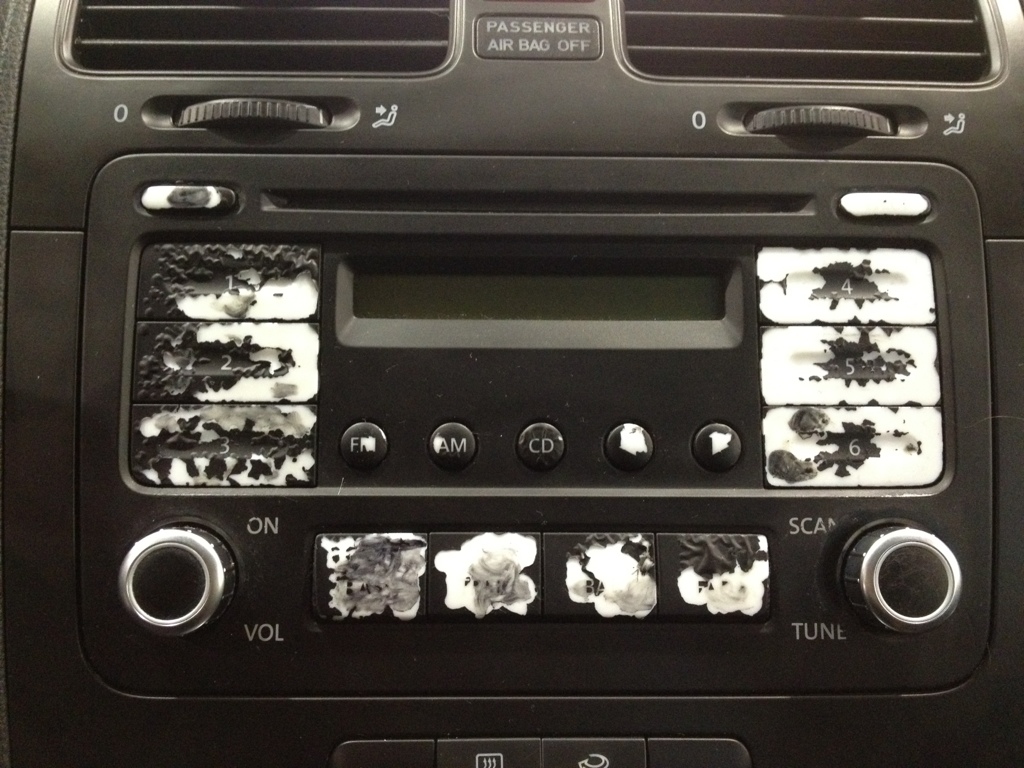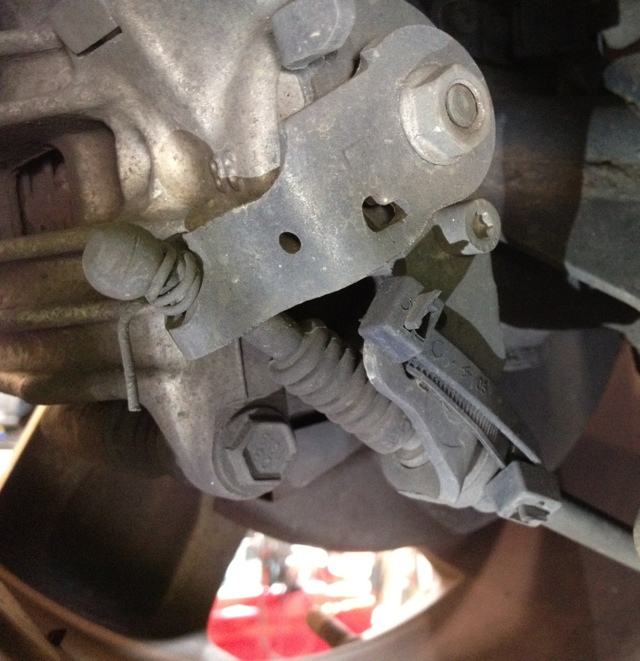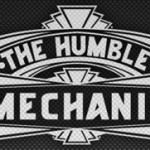Dealing With Damaged Bolts, An Auto Mechanic’s “Uh Oh” Drawer
There comes a time in every mechanic’s life when something goes wrong. It might be a slightly rounded bolt head, or something really bad like a cleanly broken off stud. Today I want to show you guys some of the tools auto mechanics use when things go wrong.
Removing The Bolt
I want to start out with my favorite extractors. We use these when bolt heads get damaged. It can be anything from rust, to a bolt head damaged from an accident. This extractor grabs the outside of a bolt. As you loosen the bolt, it grabs the bolt head even tighter. I find that this works the best. The only negative is, you need a fair amount of space to tap the extractor on. This set is from Craftsman. I highly recommend them!
The next type of “Uh Oh” tools I use are inside extractors. These, believe it or not, grab on the inside of a bolt. I commonly use this on allen head bolts. They will fit inside the opening on the bolt head. Just like the outside extractors, the more you loosen the bolt, the tighter the extractor grabs. If I had my choice, I would use outside extractors. I use these when space is limited. This is a Snap-On set. From what I remember it costs a fortune.
 Here we have a drill bit and extractor set. This set functions the same way the inside kit from before does. I use these when a bolt breaks flush with a surface. I drill a hole with the drill bit, then use the extractor to remove the broken bolt. This set works really well on lower torque bolts. I have had little luck using this set when bolts are rusted, or require excess force. They also require a lot of room. You need to be able to fit a drill where ever you are working.
Here we have a drill bit and extractor set. This set functions the same way the inside kit from before does. I use these when a bolt breaks flush with a surface. I drill a hole with the drill bit, then use the extractor to remove the broken bolt. This set works really well on lower torque bolts. I have had little luck using this set when bolts are rusted, or require excess force. They also require a lot of room. You need to be able to fit a drill where ever you are working.
 This is a Power Extractor Set. These go on the end of a drill. They are the same as the outside extractors as far as removing bolts. The only difference is they are meant to go on a drill, or other powered driver. I don’t use these much. I bought the set because a recall for B6 Passats. The extractor worked awesome on the bolts that we remove as part of the recall. Sadly, I don’t use them very much these days.
This is a Power Extractor Set. These go on the end of a drill. They are the same as the outside extractors as far as removing bolts. The only difference is they are meant to go on a drill, or other powered driver. I don’t use these much. I bought the set because a recall for B6 Passats. The extractor worked awesome on the bolts that we remove as part of the recall. Sadly, I don’t use them very much these days.
Repairing The Damage
Now that the damaged bolt, or whatever you are working with, is removed, it is time clean fix the damage. Here are some of the tools auto mechanics use to fix the damage.
 This is a thread chaser set. Auto mechanics use this for cleaning threads on nuts, bolts and other fasteners. These are great for a quick clean up. They are not sharp enough to cut new threads, they will just get rid of any dirt, or burrs. I also use this on oil pans, to clean the threads and help the drain plug go in smooth!
This is a thread chaser set. Auto mechanics use this for cleaning threads on nuts, bolts and other fasteners. These are great for a quick clean up. They are not sharp enough to cut new threads, they will just get rid of any dirt, or burrs. I also use this on oil pans, to clean the threads and help the drain plug go in smooth!
 This is a tap. You might have heard this type of tool referred to as a “Tap & Die Set”. The tap portion of the set is used to cut new threads in a bolt hole, or a nut. They are very sharp and very strong. If someone were to install a bolt incorrectly, and damage the threads, I would use the tap to cut new threads. Using the proper size tap is vital to doing the job right. If I were to cut new threads at the wrong pitch, I would destroy the new threads. THAT will make for a really bad day.
This is a tap. You might have heard this type of tool referred to as a “Tap & Die Set”. The tap portion of the set is used to cut new threads in a bolt hole, or a nut. They are very sharp and very strong. If someone were to install a bolt incorrectly, and damage the threads, I would use the tap to cut new threads. Using the proper size tap is vital to doing the job right. If I were to cut new threads at the wrong pitch, I would destroy the new threads. THAT will make for a really bad day.
 Here is the opposite of a tap. This is the die. I use this to cut new threads on bolts and studs. To be honest, I don’t use these all that much. I use them more like a thread chaser, to clean up bolts and studs. Usually, I will replace a damaged bolt before taking the time to cut new threads. 🙂
Here is the opposite of a tap. This is the die. I use this to cut new threads on bolts and studs. To be honest, I don’t use these all that much. I use them more like a thread chaser, to clean up bolts and studs. Usually, I will replace a damaged bolt before taking the time to cut new threads. 🙂
These type of tools are the “must have, but never want to use” tools. Every mechanic will have some, all, or more of the Uh Oh stuff, but trust me when I say, ” I don’t want to use them” 🙂














Having worked on one too many Aircooled vw’s, these tools make me cringe, there’s a sinking gut feeling when you know a bolt has broken and the battle that is coming to get it out. THANK GOD for these tools!!
Yes, I really need to get myself a set of those extractors. I always wonder how mechanics get things done on time, since something always breaks and you usually have to order the part (if it’s not just a bolt).
@Phil,
I would recommend starting with the outside extractors. I picked mine up at sears for ~$50. They have bailed me out so many times. They are the tools you love to have, but hate to use.
@Stephen
That is EXACTLY what happened to me today. You can feel the point just before SNAP! Ugh. 🙂
Thats funny, I still have most of those tools!! The set at sears has been just as good as my set from snap on but half the cost. I agree on started with the outside extractors. The inside ones require some experience.
Good news for vw owners. The Rust prevention VW uses on their vehicles is much better than other foreign/domestic vehicles so we actually have a whole lot less broken bolts than other manufactures.
Tell that to the rusted B5.5 I put a tie rod and down pipe on today 😉
I had to use the extractor tool on a class mates head bolt. It was a bitch job because of the tight space. I will definitely buy those tools when I start working in the field.
Love those extractors – I’ve got a very similar set (by IRWIN, I think).
They totally saved my ass (and a good chunk of money) while taking a 16v cylinder head out of a Mk2 last summer (intake manifold AND exhaust). Fun times. Haha.
I’ve got the extractor set from Irwin and it’s saved the day more than once. I’ve also had phenomenal luck with left handed drill bits. Usually right after I start drilling, they’ll start to back their way out before you need to use the extractor.
Do shops typically charge extra to extract a bolt? I started a mobile auto repair service and this is something I’ve encountered a few times. The vehicle in question is 17 years old, so I feel like the rounded bolt wasn’t my fault. I snapped a bolt as well, but it was such that the other side of the bolt was accessible, making removal a breeze.
When should I and shouldn’t I charge more for bolt extraction? Thank you so much
It’s interesting to know that repairing threads on a damaged bolt is actually possible. I’m planning to find a foreign auto mechanic soon in order to perform maintenance on my car. Some of its bolts look a bit unusual but none of my tools are compatible with them so I’m not quite sure if something is wrong with them or if they are designed to look that way.
This article on dealing with damaged bolts is super practical for any mechanic. The explanation of different extractor tools and their specific uses is particularly helpful. I hadn’t realized how crucial these tools are for saving time and preventing further damage. What brands or types of extractors have you found to be the most reliable in tough situations?